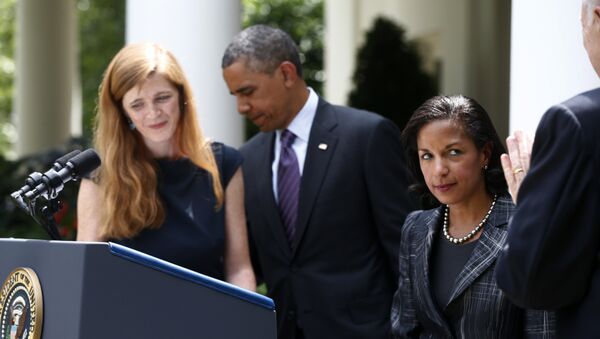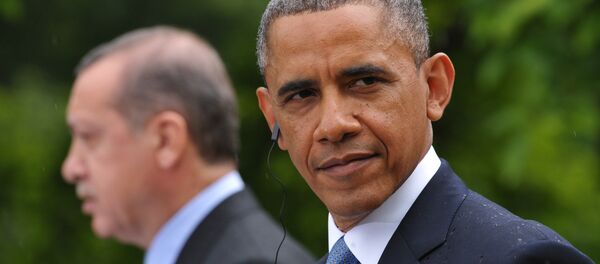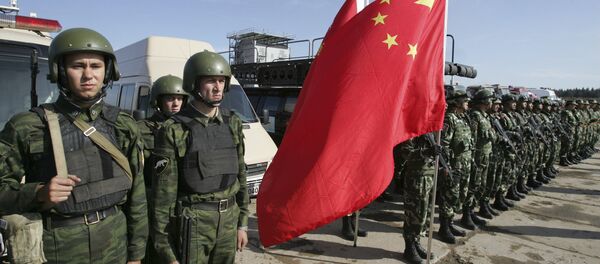The National Security Council was formed in 1947 to advise the US president on security issues and coordinate the executive branch agencies' communications.
Incredible as it may seem, the NSC has grown almost twenty times in size since the presidency of John F. Kennedy, now comprising up to 400 employees, and has adopted a more assertive approach toward the US foreign policy.
"As the NSC has taken the lead in foreign policy, the Foreign Service — America's diplomatic corps — has been increasingly sidelined. Many Foreign Service Officers are robbed of the opportunity to bring their talent and, importantly, local expertise and relationships to bear on important challenges around the world," Michael Goldfien, a Campaigns Fellow at Young Professionals in Foreign Policy, writes in his Op-Ed for The National Interest.
The scholar cites US experts in foreign policy I. M. Destler and Ivo Daalder, who pointed out that with "its own press, legislative, communication, and speechmaking offices, the NSC conducts ongoing relations with the media, Congress, the American public, and foreign governments."
Goldfien puts the spotlight on the fact that the NSC staff is actually the US president's own "team." By contrast, he notes, the State Department's career diplomats have no such close ties to the president.

American military writer and The Wall Street Journal's Pentagon reporter Gordon Lubold echoes Goldfien's stance in one of his latest articles.
Lubold calls the Council's effectiveness into question.
Quoting former top Pentagon official Michele Flournoy, the journalist stresses that "the NSC has drawn criticism for micromanaging policy decisions, stiff-arming dissenting views, and filtering the policy debate before it even reaches the president."
Breaking Defense editor Colin Clark believes that much of Obama's inconsistent foreign policy in the Middle East originates from "the micromanagement of the Pentagon and Intelligence Community by a bloated and lackluster National Security Council."
Clark draws attention to the fact that following the bombing of the Russian airliner over Sinai and terror attacks in Paris and San Bernardino, the US President called for "doing more" to defeat Daesh. However, it still remains unclear what exact strategy the Obama administration has chosen in its fight against Daesh, the journalist noted.
"I personally think Obama is right to keep America's presence on the ground in Syria and Iraq as small as possible because our being there simply provides ammunition to the madmen and aspiring caliphs who wander that part of the world. But message clarity and discipline is absolutely imperative to make sure that happens. It is a key part of the NSC's job — and it is lacking," Clark underscored.
According to Goldfien, scaling the size of the NSC back is a step in the right direction. At the same time, the US president should delegate more responsibility for foreign policy to the State Dept, the scholar believes.
"The next administration should commit to decentralizing the foreign policy process. Further limiting the scope of the NSC staff's mission will require presidential leadership-leadership in understanding one's own limitations," the US scholar emphasizes.






